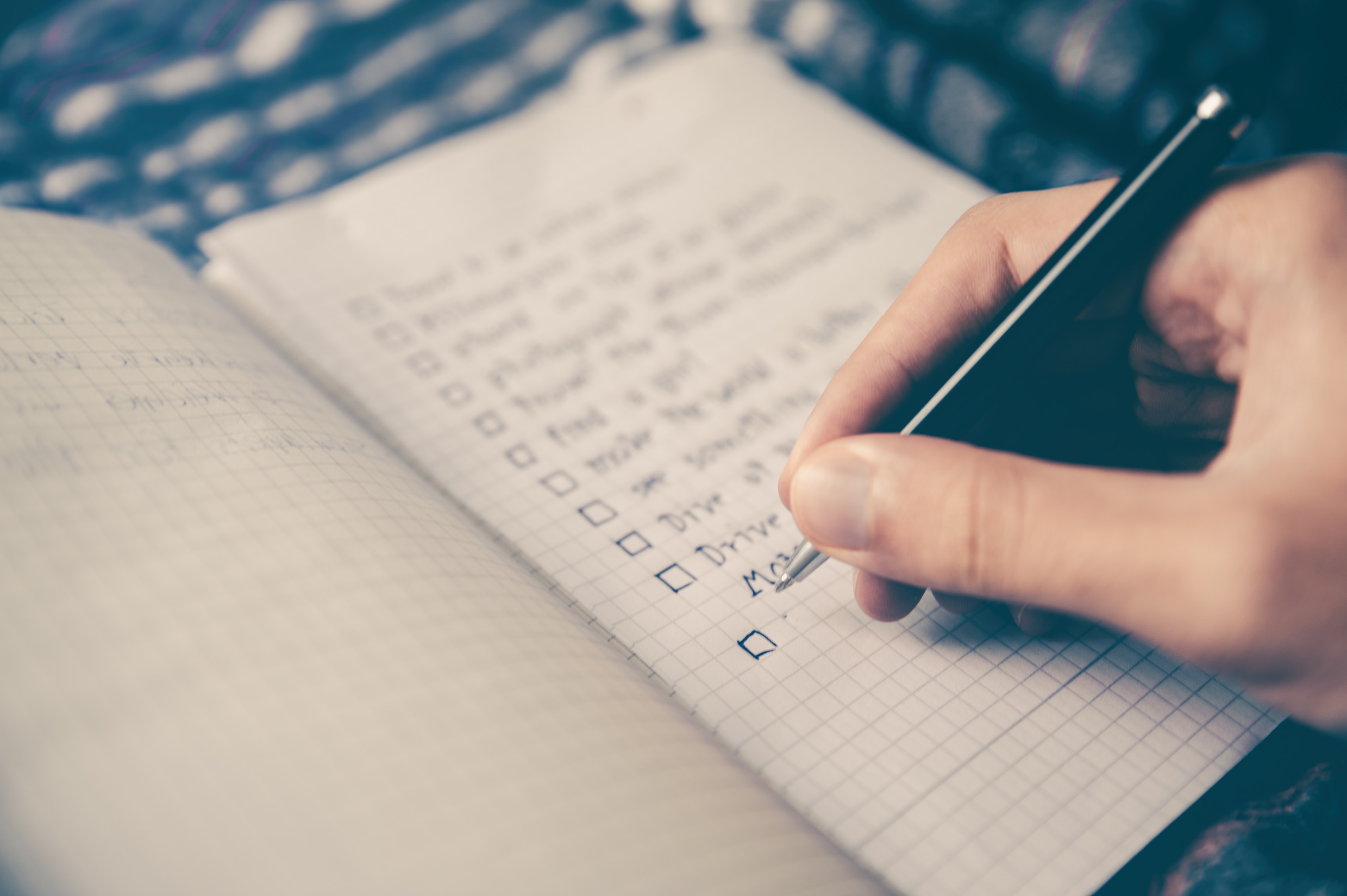Written Declarations
Simply writing down intentions can lead to a huge boost in completion. Studies show that by relying on willpower alone, goals are rarely completed. Think of New Year's Resolutions. But by doing simple things such as creating a checklist can lead to much higher rates of goal completion.
To increase the probability of completion of a task, additional, specific information can be added. These include the exact time the activity is to be completed, where it is to be done, and how it will be done. We don't really need to do this for day to day plans, but for larger projects or assignments these options are important.


